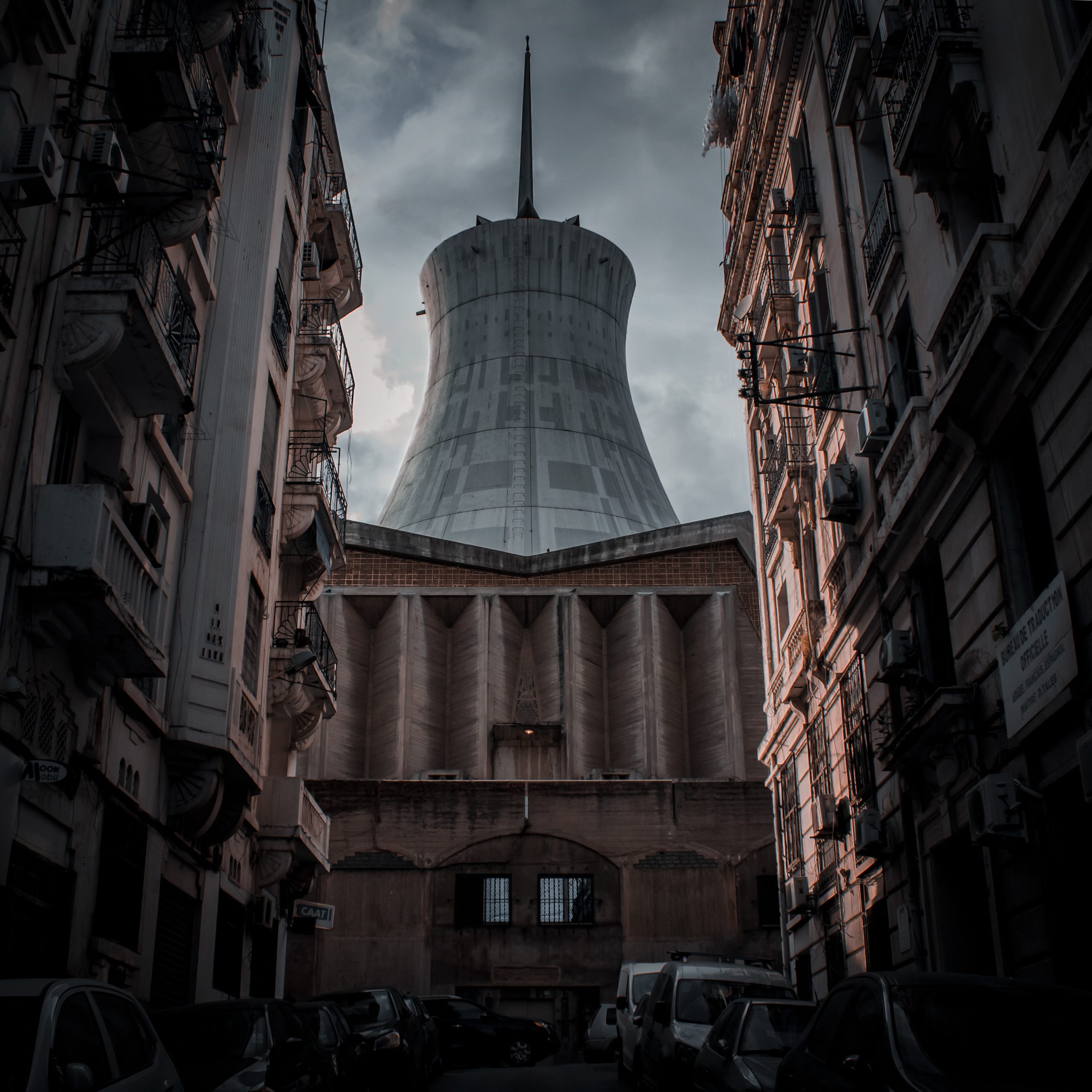The courtroom grew still. Pastor Rachid Seighir straightened, awaiting the verdict on his latest appeal.
His bookshop in Oran City, Algeria, had been closed since 2017, when police confiscated his printing equipment. At the time, he’d been accused of printing and distributing Christian literature. Though the judge had ruled in his favor then and his equipment had been returned, the shop had never reopened. In 2021, the accusation reemerged. Someone had slipped the charge under the door of the church Rachid pastored. He had been fined and sentenced to two years in jail. The church, too, had been closed by the Algerian government.
Now, Rachid’s world hung in the balance. With a short flourish, the judge pronounced the verdict of a one-year suspended sentence and a fine. Rachid released a long, relieved sigh and left the courthouse, deeply thankful to be heading home to his wife and two teenage children rather than to prison.
With brothers and sisters around the world lifting him up in prayer, Rachid would continue to appeal the accusation, but it wasn’t the first time he’d been in court. In the face of losing his freedom, Rachid understood the cost of actively sharing God’s love in his country.
In October 2017, a few years before Rachid’s appeals hearing and before the government mandated harsh restrictions on church gatherings, Algerian Jesus followers outside the coastal city of Oran confronted a red wax seal covering the lock and dripping down the door handle at the House of Hope, a prominent Protestant church and ministry center. According to an order from the governor of Oran, all activities and meetings were to stop immediately at the House of Hope and several other churches scattered across the country.
In September 2018, believers in Algeria, united under the Algerian Protestant Church (EPA), commenced a year of 24/7 prayer and fasting. The following two years brought more troubles: more church closures, more pressure on landowners renting space to Christians, more persecution for individual believers, including prison sentences for those accused of proselytizing. Then the pandemic struck and gave the Algerian government another reason to suppress the gathering of Protestant believers.
Pastor Youssef Ourahmane, vice president of the EPA, and his wife, Hie Tee, are pioneers in the missions training and discipleship movement in Algeria, as well as founders of the House of Hope. They consider the latest forms of persecution “sort of normal,” they say. “We all carry on because we have to continue to stand firm and let the Lord fight for us.”
The Ourahmanes spoke to me on the phone from their home in southern Spain, where they were waiting out travel restrictions. They maintain an apartment in Algeria, which, along with the House of Hope, was sealed in the early days of the church closures. “We made the window into a door,” says Hie Tee. “The Lord gives us the courage and the peace to do what we need to do.”
Persecution, of course, is nothing new for Christendom. Jesus himself was cursed, criticized, condemned, and ultimately crucified—before rising from the dead and ushering in the hope, peace, and assurance of God’s love that believers claim today. Despite facing threats and physical assault, Hie Tee says, “the disciples also went on to share the gospel, and so it has not stopped since then. In the same way, we just carry on—under his protection and his enabling grace and strength and his Holy Spirit. So to him be the glory.”
Youssef agrees. “The biggest mistake the church can make is to give in to fear”—particularly across the Middle East and North Africa, where Jesus followers often face strong societal backlash and persecution for their faith. “So many churches have given in to fear,” he says, “and they have failed to do what God has asked them to do.”

Khaled Hamoud
Before the government’s crackdown on Christian gatherings, worshipers at one of the larger churches situated among the snowcapped mountains of Kabylia—the birthplace of the Algerian revival—used to arrive an hour early to secure seats. Believers gathered quietly and prepared themselves to worship God and welcome the presence of the Holy Spirit. From there, services regularly stretched over three hours. Afterward, people still didn’t want to leave, so they remained and socialized together.
From the first outreach into the region in 1981, when about 30 young men decided to follow Jesus during a football tournament, the light of Christ has sparked life into hundreds of thousands of Algerians, igniting countless house groups and churches. The fledgling church, though acknowledged by the government, has attracted persecution from its inception. Like Rachid, early Algerian believers memorized verses about overcoming fear, understanding they could lose their livelihoods or even their lives for deciding to follow Jesus.
Restrictions to accessing church buildings and places like the Emmanuel Center, a large missions training hub in Kabylia, have impacted evangelistic training as well. Youssef and Hie Tee had dreamed of sending 1,000 Algerian believers to share God’s love in other countries by 2025. “Because of the closure of the church, we have been humbled in many ways,” Hie Tee says. Discipleship and training have endured, albeit on a smaller scale. “The big change that we’re going to pray for is that through this, within the church of Christ in Algeria, there will be people who wake up to mission,” she said. “God is in control, and God is purifying the church and making people seek him.”
In standing firm, the Algerian church has become an example for other Christians in the region, especially those from Muslim backgrounds. Algerian believers are “all Muslim converts, but they’re not afraid; they’re resisting,” Youssef says. “They’re not only willing to believe, but they’re also willing to suffer.”
That suffering has also garnered international support. Leaders from the United States, France, and Switzerland have intervened on behalf of Algerian believers. Because of persecution, the world has learned more about the circumstances and the bravery of the Algerian church.
And while Christians in Algeria remain prohibited from meeting together in large groups in church buildings, they still spread the gospel online through expansive social media ministries and internet TV programs airing in Arabic, Kabyle, and French.
Gathering is a gift, but even when it’s prohibited, God is still working. “Even in the midst of all of this,” says Youssef, “people are still coming to faith.”










